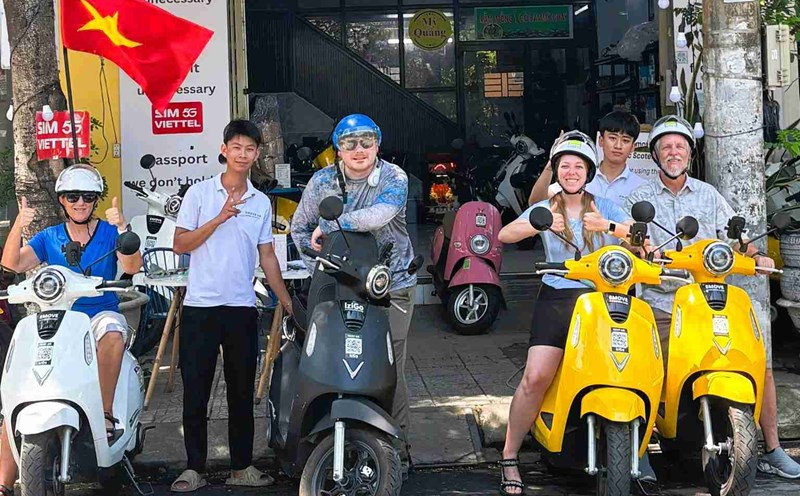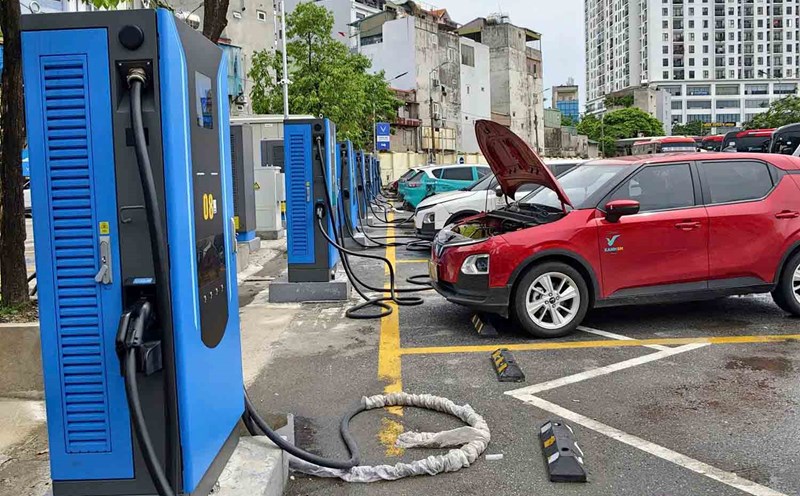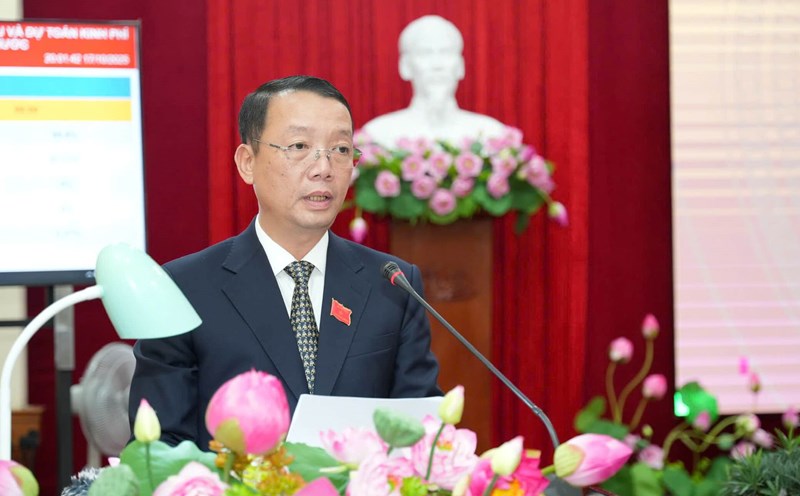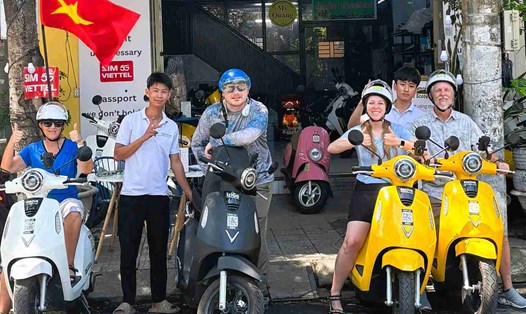Electric motorbike market takes center stage
From being reserved a few years ago, electric motorbikes are now truly creating a new wave in the Vietnamese market. The clearest signal comes from newly released data from the Vietnam Association of Motorcycle Manufacturers (VAMM), mainly traditional gasoline vehicles, in the third quarter of 2025, sales reached 621,732 vehicles, down 9.37% over the same period last year. Notably, this is the third consecutive quarter of declining sales.
The change comes not only from the trend of globalization and greening, but also from strong policies from large cities. In Hanoi, the plan to limit gasoline motorbikes in the central area from July 2026 and expand the scope of application after 2028, is considered a "catalyst" that causes consumers to change direction faster than expected.
The conversion of electric vehicles has been responded to by the people. Mr. Pham Huy Tuan, an office worker in Cau Giay, 32 years old, said that he has just completed the sale of an old gasoline car. He shared: "At first, I thought electric vehicles were only suitable for students, but now the battery technology is better, it's comfortable to work 10km a day. The charging price is only a fraction of the cost of fuel. I changed my vehicles early to avoid worrying when the city started to gradually ban gasoline vehicles.
A survey by market research firm Asia Plus Inc in September showed that out of 200 respondents, up to 54% said they would choose electric motorbikes for their next purchase, while only 24% remained loyal to gasoline-powered vehicles. In Hanoi alone, this rate is up to 60%. This shows that the trend of "electrification" is clearly forming in people's awareness.
The market is reshaping
According to research firm Mordor Intelligence, the size of the two-wheeled vehicle market in Vietnam is estimated to reach about 4.6 billion USD by 2025 and could reach 6 billion USD by 2030. It is worth mentioning that the "new growth" expected is mainly from electric motorbikes.
In fact, many people no longer consider electric vehicles as a "testing" product, but have considered them a reasonable choice in the context of increasingly high gasoline prices and maintenance costs for gasoline vehicles.
Ms. Hoang Thi Lien, in An Khanh, Hanoi, owner of a grocery store, informed: "I have to deliver nearly ten shipments every day, before, each month's fuel cost was nearly a million and a half. Since switching to electric vehicles, I have charged at home, the electricity bill has increased slightly but the total cost has decreased by nearly half. The important thing is that the vehicle runs smoothly, without smoke, so passengers standing nearby do not complain about the smell of gasoline anymore".
Not only the economic benefits, many people are also convinced by environmental factors. Ms. Hoang Hai, a Van Phong employee in Dong Ngac, Hanoi, said: The younger generation like us is concerned about climate and noise. Taking an electric car is like a way to express a green awareness. The city is less noisy, that is also a good thing".
Such small stories are reflecting a shift in consumer psychology: People are ready to change, as long as the product meets real needs and has a convenient charging infrastructure. In that picture, traditional carmakers are forced to accelerate their plans to develop electric cars.
Speaking about the electric motorbike market, the Vietnam Automobile, Motorcycle and Bicycle Association (VamoBA) said that recently, the market has witnessed the rise of electric vehicles and smart means of transport, opening a new era - the era of green, clean and sustainable transportation.
Accordingly, the specific orientation is that by 2027, 100% of Association members will have at least one electric vehicle product line; by 2030, electric vehicles will account for 40% of total output, while reducing CO2 emissions by 50% compared to 2020; by 2035, aiming for 100% of environmentally friendly products. These are important steps to meet Vietnam's commitment to achieving net zero emissions by 2050.
It can be said that in the context of the global goal of net zero emissions by 2050, the transition to electric motorbikes is not only an individual choice but also a community responsibility. Vietnam - a country with nearly 50 million motorbikes - if the relocation is successful, it will contribute significantly to reducing pollution and improving air quality in large cities.











